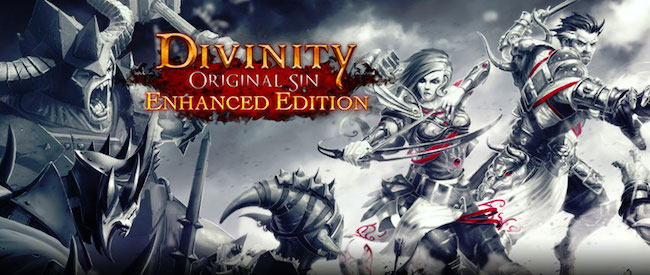
For those readers who have been keeping up with my reviews since I started at GameCloud, you’re probably beginning to realise that I have a pretty wide spanning collection of interests when it comes to all things pop culture. One of my foremost interests, ever since I read “The Hobbit” by J.R.R. Tolkien when I was ten years old, has been the genre of fantasy. Many years later, I still read as many fantasy collections I can get my hands on – as well as considering myself an experienced pen and paper roleplayer with traditional fantasy systems such as Dungeons and Dragons and Warhammer Fantasy RP among a slew of others.
When the opportunity came up to review the re-release of Divinity: Original Sin, I jumped at the chance as I’d never played the original and had heard favourable comparisons to other isometric adventure games such as Diablo, which was a cherished title from my formative years. However, I have to say that those comparisons were definitely misleading, as apart from the camera work, there really is little to compare between the two titles.
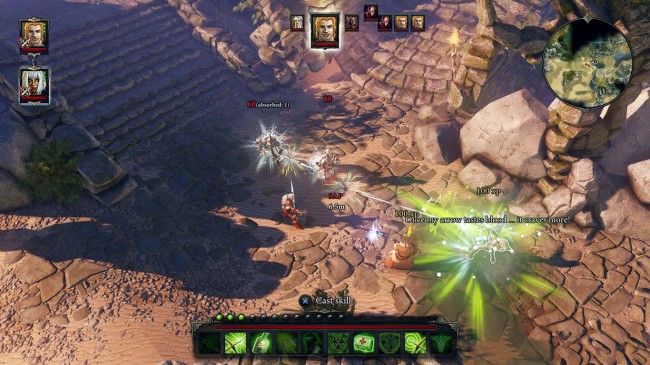
At the top of the list of things I enjoyed about Divinity was how the writing team managed to set out and encapsulate such a D&Desque atmosphere and world for you to play through. As a Source Hunter travelling with a partner, your aim is to conquer evil source users across the continent in the name of your brotherhood – but in doing so, you become embroiled in something much larger than the mission that you set out to accomplish in the beginning. It gave me such a nostalgic feeling of a story written by a Dungeon Master, and there are just so many indicative nods to pen and paper gamers that it was very endearing to play through in the time that I had with the game.
As I mentioned in my recent review of Tales of Zestiria, I’m an incredible sucker for games that enhance their worlds through other content – and there’s no lack of this in Divinity, with books and scrolls littering your travels that fill you in about the thoughts, lore and academia of the world which can both easily be ignored for the speedsters, or delved into by those who’re looking for an enriching story experience. The game also has a very “tongue in cheek” sense of humour that can be found constantly throughout, with such as examples as when looting a haystack, you’re able to find a needle item. Small things like this kept me entertained, and really added that little bit of extra flavour to an already rich narrative experience.
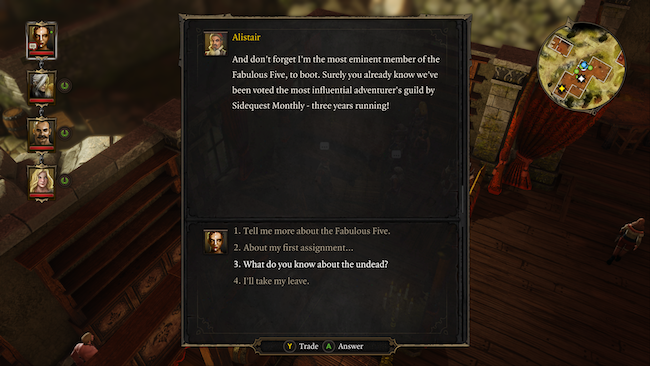
In its purest form, Divinity was an incredibly simple game when you boil it down to mechanics. The game had no implemented upgrade system, which felt like a nice change of pace based on a lot of the current generation games that come attached with some fairly convoluted equipment and upgrade systems. In terms of complexity, elemental resistances were really as difficult as the learning curve got, which meant that it really allowed for other elements of the game such as its narrative to shine through and speak more for the experience rather than painstakingly doing the mathematics to figure out which piece of gear was really going to be more beneficial.
There was also a great amount of dialogue to shape your character, which in turn assisted you to develop a personality and character traits. However, I was pretty disappointed with this system as it seemed to have little impact on how some of the story progressed due to the way the narrative had been designed. For example, I was playing through as a “Lawful Good” type character and had been stuck trying to figure out how to advance some of the quests I’d been undertaking. Eventually, I had to reference an online walkthrough, which informed me that I needed to loot some particular items from an NPCs house in order to complete the quest.
Unfortunately, this hit a really sour note for me and kind of ruined the experience of building a character in the first place. In a true RP system, a Lawful Good based character would never resort to amoral acts such as stealing regardless of the consequences, based on how unethical the act of stealing is. To me, this presented a glaring hole in the system and is something that I feel needed much more time to be developed to allow the player to choose something besides the default “Chaotic Greedy” loot and pillage of many a pen and paper groups. However, with a touch of silver lining – when entering into social combat with an NPC, I was impressed that you would go into opposition by essentially rolling off, or in the games instance, playing rock, paper, scissors. It was another cool addition that added to the tabletop feel, and was another flair that I could really appreciate.
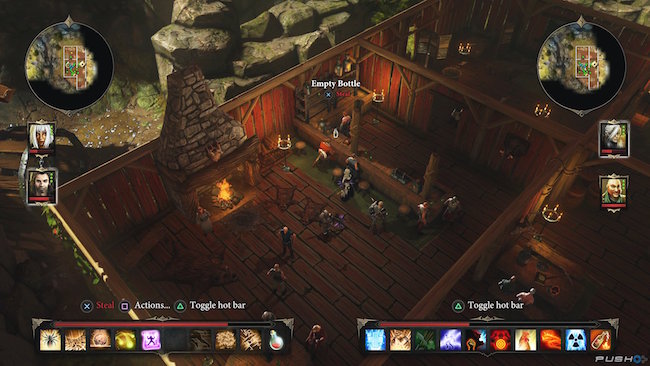
Another feature of the game that threw me through the ringer was the combat style. Based on the Diablo comparisons I had heard, I assumed that Divinity was going to be a hack and slash game – so I was obviously very surprised when I encountered turn based combat. Although, in saying that, it did begin to click naturally after awhile, which did go another step further in delivering a traditional RP experience to players via a video game system. One of the smaller details that I found irritating was the speed in which the characters travel; it just felt as if it took forever to get from one spot to another and the fluidity of the animation just seemed a little clunky. Despite this, though, I do have to acknowledge that Divinity managed to encapsulate the true feeling of a Dungeons and Dragons system through their game, much the same as predecessors such as Neverwinter Nights before it.
It was great to see the game graphics revamped a little, and the extra addition of more hues and shading definitely made the game feel much bolder on a current generation console. The voice acting was just another element that added to the immersion and really reminded me of gathering around a table at a friend’s house to take on the local horde of goblins that lived in the forest outside of town. A small irk was that NPCs would repeat certain lines of dialogue, which meant that if you were sifting through your inventory or reading a book – you would hear the same line rattled off by an NPC countless times, which became highly frustrating after countless hours of playing the game.
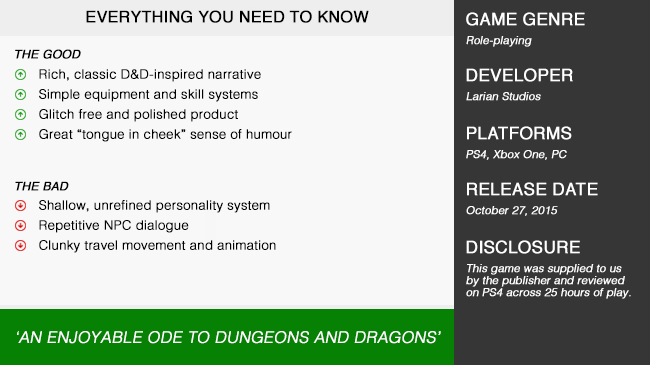
As someone who has spent much of their life enjoying fantasy titles, Divinity really hit a soft spot with me which brought about such a feeling of nostalgia and familiarity that I couldn’t help but be dragged along for the ride. While the game is certainly not perfect and could do with some system-based tweaks, the depth of narrative and familiar combat system offers enough to interest any RPG enthusiast from beginner to veteran. For anyone like me who loves dwarfs, orcs and all things swords and sorcery in their games – you won’t be disappointed with what Divinity: Original Sin has to offer with this Enhanced Edition.











